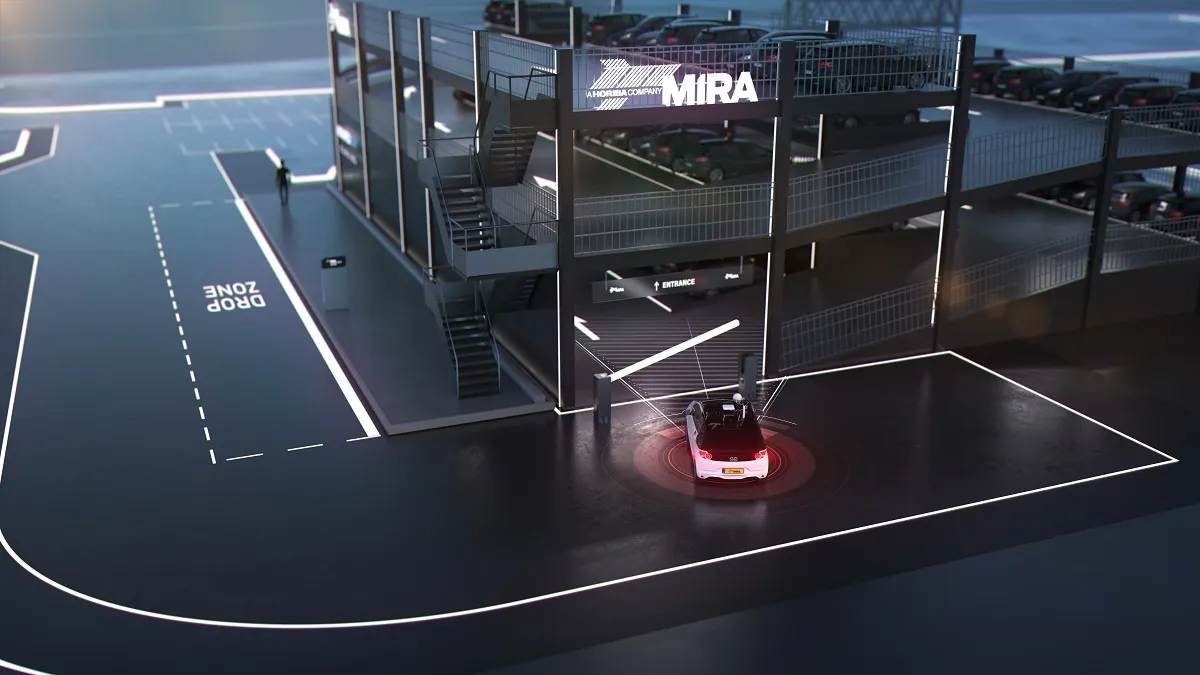
A £100m site for designing, developing and testing connected and autonomous vehicles (C/AVs) is set to open in the UK in March 2021.
Assured CAV will have a high-speed AV test facility, designed to test "at the limit of controllability", as well as urban environments where AVs "will experience pedestrians and cyclists, complex junctions and on-street parking".
There will also be a purpose-built multi-storey car park to support the development of automated valet parking, plus an ultrafast 5G mobile private network supported by Vodafone, which will allow Vehicle to Vehice (V2V) and Vehicle to Infrastructure (V2I) communications.
Digital replicas for simulated testing will also be available, supporting an on-site network of campus roads which are complemented by a 300km network of adjacent C/AV-enabled public roads for real-world road trials.
Advanced driver assistance systems (ADAS) can also be tested at the site, which Horiba Mira - part of Japanese group Horiba - has developed.
The company insists this is "far more than a location for vehicle testing".
"It has been specifically designed to enable the automotive industry, policy makers and government to develop AV technology, ensuring it is robust to the wide range of eventualities seen on public roads, before being released to consumers."
The Society of Motor Manufacturers and Traders estimates that the development and implementation of C/AVs could yield the UK economy £62 billion per year by 2030.
Horiba Mira MD Declan Allen says: "This is a unique opportunity for companies to accelerate their activities to lead the industry - it will allow companies to bring forward their activities in this sector in an efficient and optimised manner, enabling them to solve the real-world problems of integrating their automated products into the public roads, whilst also importantly achieving consumer acceptance.”
Chris Reeves, head of C./AV technologies, said: "Although we’ve seen huge strides made in C/AV technologies in recent years, the overriding challenge for the industry is giving consumers confidence that C/AVs are safe enough to be on our roads."
The new development will "foster the innovations and cross-industry partnerships needed to speed up the self-driving revolution and realise the huge economic and societal benefits it will bring", he added.








